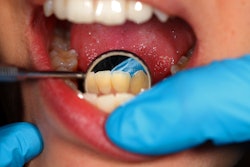Patients who buy more medications may visit the dentist more often for treatments like fillings, according to a new study published on May 23 in Clinical and Experimental Dental Research.
Drugs used for systemic inflammatory diseases were linked to more dental appointments and treatments, the authors wrote.
“Increased purchasing of nearly all types of drugs was associated with an increased number of dental appointments,” wrote the authors, led by Freja Frankenhaeuser of the department of oral and maxillofacial diseases at the University of Helsinki in Finland.
Though numerous studies have shown a link between oral and systemic health, there has been limited research investigating medicine use and purchases and their potential effects on dental health.
To explore whether purchasing more systemic medications could lead to an increased number of dental appointments or treatments, a study was conducted among 1,495 participants from Sweden, initially examined in 1985. Using national population and patient registers between 2005 and 2017, the connection between the number of medication purchases and dental appointments was analyzed. Then descriptive statistics and logistic regressions were completed, according to the study.
Purchases that were made above the median for all types of medications showed a statistically significant association with more dental appointments and respective treatments, the authors wrote.
Even after adjusting for factors like age, most medicine categories were significantly associated with more dental appointments. Patients who bought anticancer drugs or medicines that control high cholesterol and blood pressure appeared to have more visits to the dentist for treatment, they wrote.
However, the study’s longevity was a shortcoming since medication purchases and daily habits may change from year to year. Unfortunately, this information is missing from the study data, the authors wrote.
“The result indicates that not only anticholinergic drugs but simply polypharmacy and higher medication use in general potentially affects oral health negatively,” Frankenhaeuser and colleagues wrote.




















